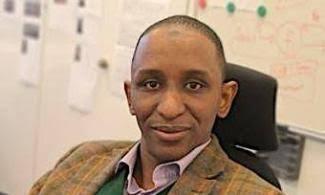
In Nigeria, the principles of justice are constantly challenged. From notable cases of detention to past occurrences of political exile, it remains an ongoing struggle. The former EFCC Chairman has been detained for over two months, while key individuals under investigation for corruption are roaming free. As foundational elements of a democratic society, a system we persist in imposing in neighbouring countries, protecting individual rights must be prioritised to maintain public trust and ensure that justice is served impartially.
The EFCC stands as a beacon of integrity and determination in the fight against financial and economic crimes. It represents a collective effort to fight against corruption, money laundering, and illicit financial activities, a testament to Nigeria's dedication to transparency, accountability, and the rule of law. The institution's commitment to justice transcends individual leadership and symbolises Nigeria's resolve to create a working system.
The individuals who lead EFCC may sometimes be compromised or even disliked, but the institution stands above personal interests and represents a critical pillar in the nation's legal framework. The point here is that respecting the institution is paramount. The citizens must recognise its role in safeguarding Nigeria's integrity, regardless of the actions or reputations of those who may occupy its leadership positions.
For example, Nuhu Ribadu, the current NSA and the first Chairman of the EFCC, was instrumental in shaping the institution's mission and fighting corruption without fear or favour. His relentless pursuit of justice and commitment to integrity put him at odds with powerful interests, leading to his dismissal from the police service in 2008. The situation escalated when death threats and an apparent assassination attempt forced Ribadu to flee the country and exile. No doubt, the complexity and danger of taking a stand against entrenched corruption within a system comes with the territory. He is the NSA today, and one would believe his experience and courage to fight for justice will remain stronger than ever.
Two months have passed, and the young man, the EFCC boss, remains in detention with only vague information about "weighty allegations of abuse of office" from the SGF office. This serious concern calls for preserving our rule of law.
Had Mr Bawa foreseen this situation, he might have considered going into exile, as Ribadu did in 2008. It's not a matter of shame but rather a reflection of the circumstances that individuals might find themselves in. Prominent figures like Tinubu have taken this path, illustrating the complexity of the political landscape in Nigeria and the challenges faced by those who may find themselves at odds with powerful interests. On second thought, Bawa might not have thought of going into exile because he would think these people had fought against powerful interests and had a strong commitment to democratic principles that protected individuals' rights.
Of course, we have serious questions about the legal process's consistency, fairness, and motivations behind Bawa's detention because the key individuals he was investigating are now free. In a system where justice is expected to be blind, the optics of detaining a figure tasked with combating financial crimes while those accused roam free can erode public trust and confidence in the institutions responsible for upholding the rule of law.
Considering the history of stand-offs between the DSS and EFCC and the current leadership structure with Nuhu Ribadu as NSA to whom the DSS reports, such a scenario should not arise. Respect for the institution of the EFCC remains paramount. Transparency, due process, and accountability must always be at the forefront of actions taken by these significant institutions. This case serves as a reminder that institutional respect and democratic principles require constant vigilance and commitment from all levels of governance.
As we continue to strive against the junta in Niger, we must practice what we preach by protecting individual rights in the country because it is foundational to a just and democratic society. They form the bedrock upon which trust in the legal system and government institutions is built. The public must have confidence that laws are applied equally and fairly, without bias or favouritism, and that every individual's rights are respected, regardless of their status or position. When these principles are compromised, as can be perceived in situations like Bawa's detention by the DSS while key suspects of corruption remain free, it can undermine faith in the entire system.
N.A.